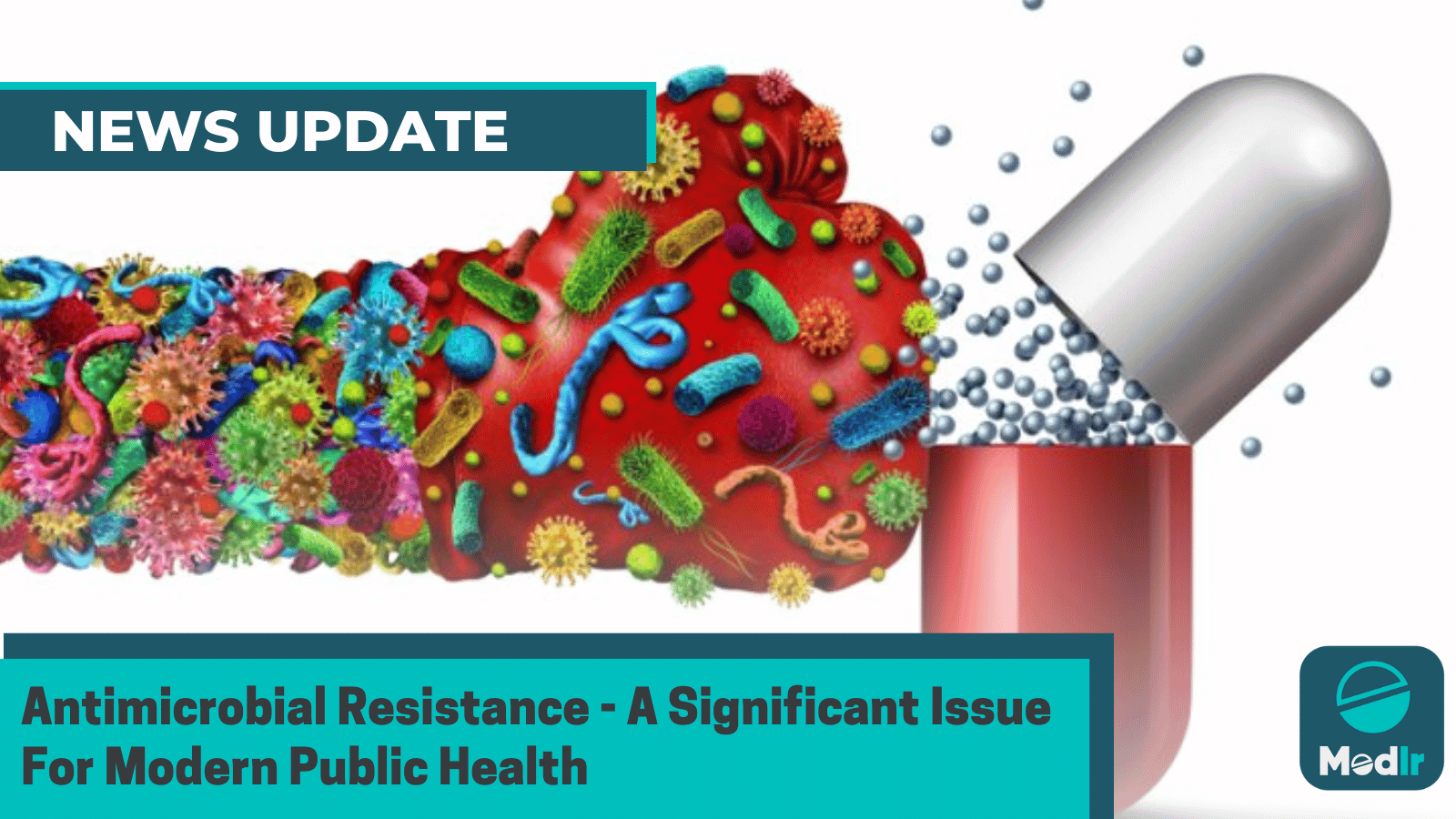Antimicrobial Resistance - A Significant Issue For Modern Public Health
Written by Jaskiran Walia, Arushi Sharma
Antimicrobial Resistance (AMR) stands as a formidable challenge within the realm of modern public health.

Prof. David Graham of Newcastle University is assisting WHO, FAO, and OIE in developing global antibiotic resistance recommendations for 2020.
The rapid global spread of SARS-CoV-2 demonstrates the ability of infectious pathogens to propagate quickly. While not directly related, growing antibiotic resistance (AMR) and COVID-19 offer serious health problems. Last-resort antibiotics are critical for secondary infections, but their potency may decline, raising the possibility of a large pandemic caused by illnesses that current treatments struggle to control.
These suggestions address the spread of antibiotic resistance in the environment. There are known "hot-spots" of resistance in densely populated areas with inadequate sanitation and water quality.
The guidance, which has been translated into six languages, provides governments with a framework for developing regionally adapted action plans. The approach, which is supported by Newcastle University research, emphasizes that addressing rising antibiotic resistance involves more than just ethical antibiotic use; enhancing global environmental quality may be equally or even more important.
Prof. Graham and colleagues from the Indian Institute of Technology, Delhi expanded antibiotic resistance studies beyond the Ganges River. The findings indicated a variety of local drivers of resistance evolution and diffusion, with genes migrating fast across numerous pathways, even to pristine arctic regions where antibiotics are not present.
Professor Graham explain -
“The only way we are going to win the fight against antibiotic resistance is to understand and block the environmental and other pathways that lead to spread. Our work has shown that although the types and drivers of resistance are diverse and vary by region and country, there are common roots to its spread such as inappropriate antibiotic use in medicine and agriculture, industrial pollution, and inadequate sanitation, resulting in poor water quality.
There is no such thing as a cookie-cutter solution – each country needs to have its own plan for preventing and addressing the spread of antibiotic resistance that considers that country’s particular situation.”
He added -
“This means rapidly improving waste management, sanitation, and water quality on local and global scales – especially in emerging and developing countries where the social impacts of resistance are often the greatest – otherwise antibiotic resistance will continue to increase, making the next pandemic even worse.”
Prof. Graham’s collaboration with UN Environment Program resulted in the 2023 report “Bracing for Superbugs,” emphasizing root-level prevention and integrated surveillance (One Health) to combat antibiotic resistance. Prudent antibiotic use and tailored local solutions, like efficient waste management, are urged. International cooperation for better WASH is highlighted for pandemic prevention.
Professor Graham concludes with -
“Once improved sanitation and hygiene exist at global scales, as well as fairer access to clean water, our reliance on antibiotics will decline.”